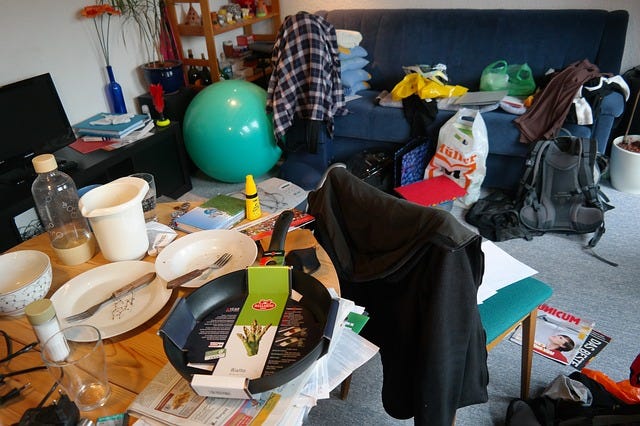As my interest in all of these innovations grew I became excited, and wanted to be a part of the whatever the future would bring. I began to read books and articles (see below), attend conferences and trade shows, and learn about new companies. All of the people I met were extolling how we would soon have our lives transformed at the touch of a screen or just by uttering a command or asking a question. I began to believe that these changes would have more of an impact on our lives than just the thrill of capturing animated warriors, who were posing virtually, in the park across the street.
Fantastic!
I was eagerly anticipating driverless cars, a cure for Alzheimer’s, genetically modified tofu that tasted like Boston cream pie, enriching relationships with new people from all over the world; new, cheap, sustainable sources of energy, and more time with my grandchildren.
But in the Spring and Summer of 2016 the clouds began to form as the political landscape began to dominate the forecasts and darken the future . There seemed to be a resentment growing and an anger brewing in many people. These people began to feel overwhelmed. The changes that I found so exciting, they felt were ruining their lives. People began to express how uncomfortable they felt with new people and the new lifestyles. They were unclear if it was the Chinese, Mexicans or robots taking their jobs. They were not happy that it often took pushing buttons on three remotes to find the TV show that used to be there if you pushed one “on” button. And where has Bill O’Reilly gone?
People seemed to want to stop, or at least slow down, the flow of these changes and reestablish the sense of security that came with living with what felt familiar, even if that feeling only came from nostalgia and nothing that really ever was.
But the pace of change has not stopped. New things quickly began to get old and newer new things were arriving. Every next thing seemed more complex and different, and whatever it did, it did it faster than before. New books kept coming, and so did web sites, articles, studies and ideas. But now, the tone began to change. There were questions raised about whether these new things were really bringing insight, knowledge, ease, comfort or joy. People began to focus on the downside of all of these changes. Who were these new people? Is Artificial Intelligence smarter than I am? How did so many people know I needed a hub cap? How do they know what kind of medicine I’m taking? Who else knows so much about me? Can I trust the new information I am being given? Can I trust my employer? Can I trust my government?
We are learning, once again, that every new technology that humans develop brings many changes, and they all come with mixed results. This has been true for fire, axes, wheels, agriculture, gun powder, internal combustion engines, plastics, nuclear energy, Twinkies, digital computers, the Internet, and now CRISPR, Artificial Intelligence and Deep Learning.
Like all of those innovations, there has never much discussion about how and when to use these new tools. There have been very few times in the history of human civilization when any planning or preparation of this kind has been done. What usually happens is that a group of creative folks come up with something new. Sometimes, if they’re in the right spot at the right time, it either fills a need or creates it’s own need. Then other people figure out different ways to use it. Some of those ways work and sometimes it blows up. Clear examples of this are the internal combustion engine and the iPhone.
But soon after every innovation, the same kinds of societal difficulties begin to appear
Who gets to own it and control it?
Governments, Corporations? Individuals?
How much power does it bring to whoever controls it?
Who gets to use it?
How much does it cost, and who gets the money?
Who else is necessary? Who gets included? Who gets excluded?
Usually, the ones who develop whatever is new get to profit and to control it’s distribution and use, at least for a while.
Then, if it becomes a very powerful tool, it gets taken over by a government or corporation. If the developer is powerful and well managed, such as Apple or Ford, then they keep their advantage for a while. They get to make the market and attempt to ward off competition. The public has to pay for it, or not have it.
Problems almost always arise because the distribution and use of whatever is new and powerful is never equal across any society. The new advantages almost always go to those who had the old advantages; those with the power, access and money. This creates anger and resentment in those who are left with old tools to deal with new problems. If you are left with your horse and buggy or a land-line, you suffer.
What adds to today’s confusion, is that many of the new tools and machines that have been designed to bring us a marvelous new future of happiness, creativity and freedom, are also being used to distract, manipulate and control us. Tools are just tools, whether they are axes or Deep Learning. They can be used to cut up firewood, or chop off your hand. They can be used to treat your medical problems or change your political beliefs. It depends upon who can get them, who knows how to use them, and what their goals are.
There has never been a successful way to limit or plan the usage and distribution on any new technology. Occasionally, a government will decide that it must be the one to control something. That is usually true for any major military item, from a tank to a nuclear weapon. But we are seeing that even those can fall into the hands of non-governmental fringe groups, as so many “independent” military suppliers exist around the world. Thankfully, so far, it has not happened for nuclear weapons.
Another factor is that the confusion creates more confusion. One of the major new creations has been instant world-wide communications. Everything changes so quickly, and everybody knows about it immediately. An idea can spread so fast that is difficult to sort out all of the interpretations of what is happening. Everyone has an opinion that is usually based on partial facts. Communications run through many channels at once. Often what comes out is distorted or incomprehensible. Eventually, the truth becomes clear: “Meet the new boss/Same as the old boss.” (trite but true)
The ideal, the “mission statements” behind many of these new developments, is to make the world a safer, healthier, smarter, and more harmonious place for everyone. But that requires a complex set of skills that our species has talked about for a few thousand years, but is yet to show that it is capable of performing. This includes caring about people we don’t know, sharing with those who don’t have as much, and the other ideas from the enlightenment, such as freedom, justice and equality for all. Those are my values, revised to really include everyone. I’m not ready to give up on them.
I’ve seen those things written down in a few places, but it seems as soon as there are a few dollars left unguarded on the table, the ideals seem to vanish.
But perhaps, maybe, this time, we can devise the right algorithm that can lead enough people in the right direction, and convince both the rich and greedy, AND the angry and confused, that if things are better for all of us, then things are better for all of us. And if you need a yacht that badly, you can still have it.
We are at a tipping point. The future still looks cloudy. We all will have an influence, either active or passive.
* * * * * * * *
Some of the Books that are relevant:
Thinking Fast and Slow, Daniel Kahneman, 2011
The Gene Machine, by Donnie Richmond, 2017
The Body Builders, by Adamd Piere 2017
To Be a Machine, by Mark O’Connell, 2017
Our Grandchildren ReDesigned, by Michael Bess, 2016
Homo Deus, by Yuval Harari, 2017
Thinking Machines, by Luke Dormehl, 2017
Heart of the Machine by Richard Yonck, 2017
From Bacteria to Bach and Back, by Daniel Dennett, 2017
The Inevitable, by Kevin Kelly, 2016
From the Web:
Oliver Cameron’s transmission about the technologies of self-driving cars
Backchannel, on Medium
Future Tense, ASU and Slate
Mate Labs
The Who
Many, many others








